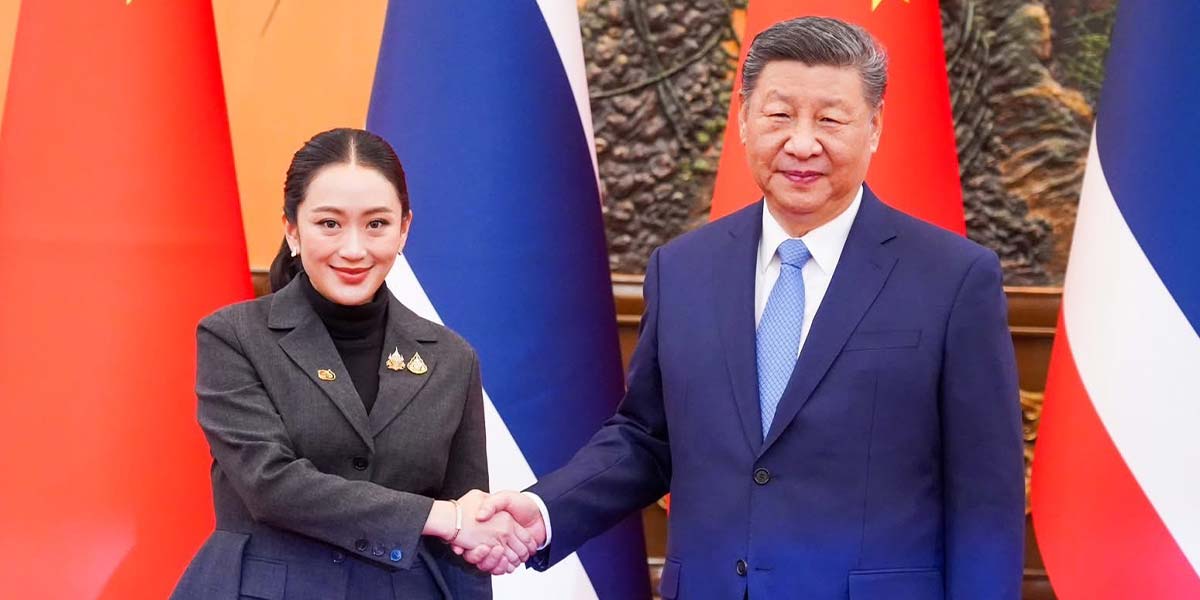On Thursday, Thailand’s Prime Minister Paetongtarn Shinawatra visited China and engaged in talks with President Xi Jinping, with a focus on bolstering bilateral ties amid a climate of global uncertainty, as reported by the official Xinhua news agency.
Paetongtarn’s visit to China, from February 5 to 8, marks her first trip to Beijing since assuming office in August last year. This visit aligns with the 50th anniversary of diplomatic relations between China and Thailand and comes at a time when concerns were raised over online fraud and safety issues.
A recent notable incident involving Chinese actor Wang Xing, who was misled into visiting Thailand for a supposed acting job and was later kidnapped by a scam operation in Myanmar, has ignited debate in China regarding cross-border telecommunication scams.
In response to rising safety concerns among Chinese tourists—who make up the largest segment of visitors to Thailand—the Thai government is anxious about the impact on its crucial tourism industry.
Concurrently, Thailand announced on Tuesday that it would disconnect the power supply to certain border areas with Myanmar to combat illegal scam centers. The Southeast Asia’s second-largest economy then proceeded on Wednesday to cut off the electricity at five locations connected to Myanmar following the order from the National Security Council (NSC).
According to the United Nations, Southeast Asia—particularly border regions in Thailand, Myanmar, and Laos—has become a hotspot for telecom and online fraud since the onset of the COVID-19 pandemic, with hundreds of thousands reportedly trafficked into scam operations.
The discussions between Xi and Paetongtarn also take place against the backdrop of a renewed trade conflict between Beijing and Washington, following the U.S. President Donald Trump’s imposition of 10% tariffs on all Chinese imports.
Thai Commerce Minister Pichai Naripthaphan, in November last year, noted that Thailand maintains a balanced relationship with both the U.S. and China, and anticipates benefiting from the trade dispute, as increased Thai exports to the U.S. could fill the gap left by reduced imports from China.





